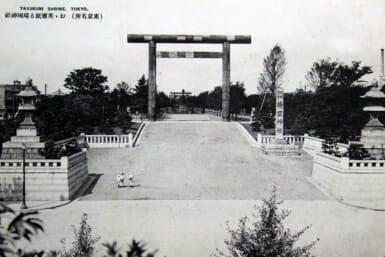Kenneth Alan Grossberg
Kenneth Alan Grossberg is professor of marketing & strategy at the international MBA program of Waseda University and founder and Director of the Waseda Marketing Forum. Dr. Grossberg has been active in international business and management education for more than thirty-five years, much of that time spent working in Japan and the Pacific Rim. He earned a PhD at Princeton University in Politics and East Asian Studies (1977) with his research carried out at the University of Tokyo and at Harvard. He is fluent in Japanese and Chinese.
Lately much hand-wringing has been focusing on the fact that Japanese students no longer find study at American colleges and universities as attractive as they once did. According to Japanese government sources, 78 percent of Japanese who chose to study at a foreign school in 1994 went to a US college; by 2007, that percentage had dropped to 46 percent. This is a declining percentage of a number that is declining in the first place: The Institute for International Education counted the number of Japanese students undertaking university studies in America at 29,264 three years ago, a 60 percent decline from a peak of 47,073 a decade before.
Obviously it is not just the declining attractiveness of studying in the United States that is at issue, but the general lack of enthusiasm current Japanese university students show for studying abroad, period. As reported by Japan’s Ministry of Education and Science, the number of Japanese students going overseas declined by 11 percent to 67,000 in 2008 from the year before, and was then 20 percent less than its 2004 peak — and this trend is continuing.
So what can we make of it? Some opinion-leaders in Japan have accused the younger generation of being weak, self-indulgent, introverted, passive and a whole slew of other unattractive adjectives in trying to explain the kids’ lack of enthusiasm for packing their bags and taking an educational flyer in the states. But is this really entirely fair to those 20-somethings? Anyone who knows anything about the Japanese educational system — native or foreigner — understands that it is a system ideally designed for creating good test-takers and outwardly docile employees. In the past, when the United States was perhaps more convincingly the world’s most powerful economic and technological superpower, Japanese had a stronger incentive to study at American colleges and universities. Nowadays, with all the hype about China’s rapid rise and its new status having replaced Japan as the world’s second largest economy, plus its being geographically much closer to Japan and way cheaper to study there than to travel to North America, it is not so hard to see why Japanese students might consider Chinese universities a reasonable alternative destination.
Putting aside for a moment the issue of quality and prestige of the education received, “you get what you pay for” might not be a sufficiently strong argument to convince Japanese to spend the two to four times more for their study abroad experience that going to the USA would entail. Even with a strong yen, US tuition and fees are still jaw-droppingly expensive. Not to mention the fact that many Japanese still consider the United States to be a dangerous place to live, and, compared to Japan, it is indeed just that.
Some think Japanese students have become too satisfied, “spoiled” and complacent with their native environment to venture abroad, others blame the digital age which links us to the world virtually without ever needing to actually walk out our front doors, and still others complain that young Japanese are risk-averse and avoid any challenges. There are some truths in all of these theories, but Japan’s leaders have no one to blame but themselves for socially engineering an educational system that is designed to stifle initiative, singularity or healthy differences of opinion. The younger generation of Japanese is not well-equipped to take advantage of an American sojourn that requires individual initiative to get the most out of that educational experience.
And this does not look like it will change very quickly, even as Japanese companies like Uniqlo and Rakuten issue a call for more “globally capable” candidates. Perhaps the next generation will once again become enthusiastic about studying in English in the USA, but more than just lip service will have to be paid before young Japanese display the samurai spirit of adventure that their leaders accuse them of lacking.









